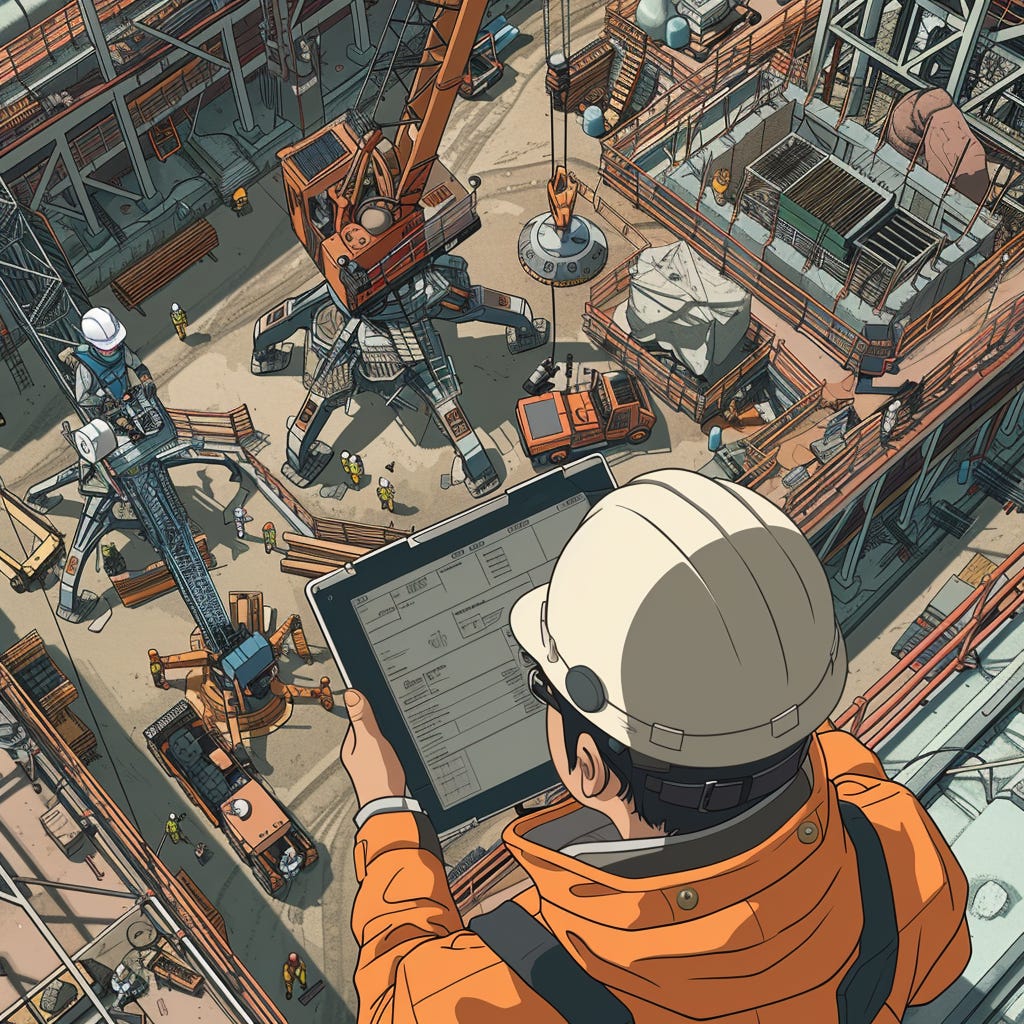In real estate, a developer is like a business's CEO —the quarterback.
They make the critical daily decisions needed to ensure success. Tom Brady would surely be a developer if he had chosen the job site over the gridiron.
What Exactly Does a Developer Do?
A common misconception is that a developer is a person in a suit, sitting behind a computer, crunching numbers. While this can be true, developers come in many different shapes and sizes. Furthermore, there are developers in various real estate categories, such as single-family, multifamily, commercial, and industrial projects.
They also operate on different scales, from a few flips per year to developing skyscrapers that take almost a decade to complete.
Like real estate, developers are a spectrum, but all share similar responsibilities.
The Vision and Planning
A developer begins with a vision.
They conceptualize what they want to create and plan meticulously.
For example, my vision is to develop single-family homes at scale in growing Florida markets. My strategy is to do the development in-house so we can cut costs and maintain control over job site activities.
Market Research involves investigating market trends, rental rates, and sale prices for different properties. Developers need to understand the market for multifamily, residential, commercial, or any other type of property they plan to develop.
Feasibility Study: This step is crucial to determining whether the project is worth pursuing. Developers analyze costs versus potential returns, considering various strategies such as refinancing, renting, or selling.
In my case, I do the market research myself using technology to create comprehensive market analysis reports, which I then compare to make decisions on where we will build next.
Often, developers have teams doing this research for them, but ultimately, the developer decides where to break ground.
Property Acquisition
Finding the Right Property:
Developers select properties that fit their vision, which involves actively examining different properties within a market, sometimes with a dedicated team presenting data and recommendations. Developers then have to negotiate effectively to obtain the property they want at a price that makes the project feasible.
Due Diligence: Before purchasing, developers conduct thorough inspections and studies to ensure the land is suitable, including checking zoning laws, environmental impacts, and any restrictions.
I use a team in this step. For us, it is more about finding an area where we can build homes at scale. Once we identify the properties, my team does the off-site due diligence of checking zoning, environmental, and legal, and my on-site team will thoroughly check the land itself, noting the vegetation, land quality, and other issues that may affect construction. I will often visit the area to look at the demographics, often asking myself:
Who lives there?
Where do they shop(groceries, leisure, etc)?
Where do they work?
Financing the Project
Raising Capital: Developers excel at raising funds, often needing significant capital. They connect with investors, sell their vision, and negotiate with lenders to secure favorable loan terms. While I am still honing my skills in this area, I am actively building my network, discussing my projects, and seeking funding.
I know of many developers whose main job is to finance the project. They are sales experts who know little about the physical development process but can raise large amounts of capital through their real estate knowledge and persuasion skills.
Development Process
Design and Approval: Developers work with architects and engineers to design the project and obtain necessary approvals from city authorities. This process can be time-consuming and requires coordination with various professionals. An example for our projects would be:
Engineers (Civil, Mechanical)
City Planner
City Building Department
Architects (Building, Landscape)
Pre-Construction: This phase includes obtaining permits and finalizing financing to pay contractors and start site work.
Construction Management: Depending on the project's scale, developers might be hands-on or delegate extensively. I focus on coordinating systems and a team of project managers, superintendents, and contractors, leveraging technology to ensure everything runs smoothly. Given the scale of our projects, it's impractical for me to visit every site, so I rely heavily on my team to document and manage the process.
When we started, I was more of a GC than a developer. Since we only had a handful of homes, I would drive to the sites daily and ensure my teams were working.
Exit Strategy
Keep reading with a 7-day free trial
Subscribe to Adan’s Newsletter to keep reading this post and get 7 days of free access to the full post archives.







